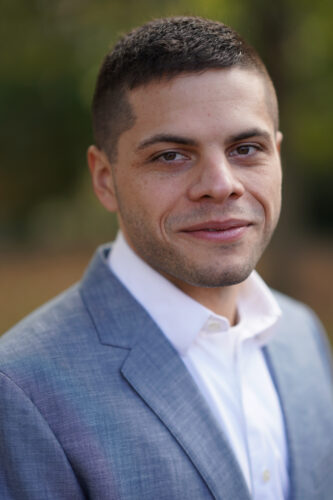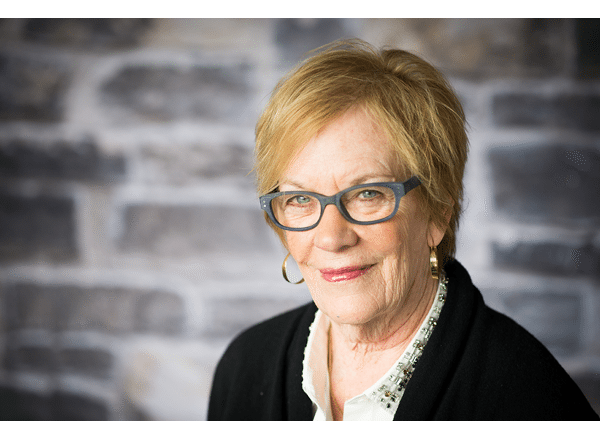Stephen Soldz is a professor, clinical psychologist, and psychoanalyst with a specialization in research methodologies. In addition to teaching at BGSP since 1989, he has taught at Boston University; Boston College; Harvard Medical School; and the University of Massachusetts, Boston. During the 2016-2017 academic year he was a Fellow-in-Residence at the Edmond J. Safra Center for Ethics at Harvard University. In the fall of 2019, he will be an adjunct professor at Tufts University’s Experimental College.
Dr. Soldz has been research director of several nonprofit and for-profit consulting organizations. He has consulted to federal, state, and local governments, as well as corporate and nonprofit organizations, including the Department of Defense, the North Carolina Department of Corrections, and the Massachusetts Department of Public Health. His research has focused on research methodologies, substance abuse, tobacco control, personality, lifespan development, and psychotherapy research.
From 2006,, Dr. Soldz has been a leader in a movement to remove psychologists from sometimes abusive national security interrogations and to change the American Psychological Association’s (APA) permissive policies allowing that involvement. These efforts bore fruit in 2015 when a report commissioned by the APA (Hoffman Report) documented extensive collusion between the APA and the Defense Department. Release of the report led the APA to vote to remove psychologists from national security interrogations and from detention sites, such as Guantánamo, which the UN has declared operate in violation of international law. In response, in fall 2015, the Defense Department withdrew psychologists from any involvement in detainee relations at Guantánamo.
This work expanded beyond interrogations to encompass ethical issues raised by other forms of psychologist involvement in military and intelligence operations, an area known as “operational psychology.” As part of this effort he wrote or coauthored over 100 articles, journal papers, and book chapters and was interviewed by press from around the world, including CNN, New York Times, Washington Post, NPR, the Associated Press, and radio in South Africa, Jamaica, Switzerland, Australia, among many others. Soldz was a lead author of the report “All the President’s Psychologists: The American Psychological Association’s Secret Complicity with the White House and US Intelligence Community in Support of the CIA’s ‘Enhanced’ Interrogation Program,” featured on the front page of the May 1, 2015 New York Times. He was President of Psychologists for Social Responsibility, a cofounder of the Coalition for an Ethical Psychology, and currently is an Advisor to Physicians for Human Rights and a member of the Council of Representatives of the American Psychological Association.
Dr. Soldz has won numerous awards including Best Paper, Journal of Research in Personality; Distinguished Psychoanalytic Educator, International Federation for Psychoanalytic Education (IFPE); Vision Award, National Association for the Advancement of Psychoanalysis (NAAP); Leadership Award, American Psychological Association Division 39 (Psychoanalysis); and the Anthony J. Marsella Award, Psychologists for Social Responsibility.
Along with his other interests, Dr. Soldz is interested in ways in which the understanding of individual, group, and organizational dynamics provided by psychoanalysis can enrich social change efforts. Psychoanalysis, he believes, can help understand the “human factor” that can help or hinder effective change strategies.
Program Affiliation
Programs in Psychoanalysis and Clinical Mental Health Counseling
Education
Cert.Psya., Boston Center for Modern Psychoanalytic Studies, 1988
Ph.D., Boston University, 1986
M.Ed., Lesley College, 1978
Books
Soldz, S. & McCullough, L. (Eds.), (2000). Reconciling empirical knowledge and clinical experience: The art and science of psychotherapy. Washington, DC: American Psychological Association Books.
Papers
Soldz, S., & Arrigo, J.M., Frakt, D., Olson, B. (2018). Second response to Staal: Independent moral assessment, an essential requirement for ethical practice in operational psychology. Peace and Conflict 24, 460-463.
Soldz, S., & Arrigo, J.M., Frakt, D., Olson, B. (2018). Response to Staal: “Psychological ethics and operational psychology” — fundamental issues and methods. Peace and Conflict, 24, 448-456.
Soldz, S. (2018). Principles determine practice: Commentary on World Psychiatric Association Declaration on Participation of Psychiatrists in Interrogation of Detainees. Torture, 27, 96-97. [Invited commentary.]
Soldz, S., Olson, B., & Arrigo, J.M. (2017). Interrogating the ethics of operational psychology. Journal of Social and Community Psychology, 27, 273-286.
Zaman, B. & Soldz S. (2016). Why cannibal? Representation and defense in the Meiwes “German cannibal" case. International Journal of Applied Psychoanalytic Studies 14, 69-80.
Kimball, S. & Soldz, S. (2014). Medical professionalism and abuse of detainees in the war on terror. British Medical Journal, 348: g2947. [Editorial.]
Eidelson , R., Pilisuk, M, & Soldz, S. (2011). The dark side of “Comprehensive Soldier Fitness.” American Psychologist, 66, 643-644.
Soldz, S. (2011). Fighting torture and psychologist complicity. Peace Review, 23, 12-20.
Soldz, S. (2008). Psychology and coercive interrogations in historical perspective. Psychoanalytic Dialogues, 18, 592-613.
Olson, B. Soldz, S., & Davis, M. (2008). The ethics of interrogation and the American Psychological Association: A critique of policy and process. Philosophy, Ethics, and Humanities in Medicine, 3, 1-15. Available online at: http://www.peh-med.com/content/3/1/3
Altman, N., Cushman, P., Goldsmith, M., Hartman, S., Hollander, N., Lesser, R. Lotto, D., McCarroll, J., Peoples, K., Riethmiller, R., Samuels, A., Soldz, S., & Stopford, A. (2007). Discussion of Neil Altman's paper 'Psychoanalysis and war.' Psychotherapy and Politics International, 5, 184-214.
Soldz, S. (2007). Thinking critically in the midst of the maelstrom: Can psychoanalysis help us stay sane in an insane world? [Introduction to Special section: Ideology and the Clinic.] Psychotherapy and Politics International, 5, 163-170.
Olson B. & Soldz S. (2007). Positive illusions and the necessity of a bright line forbidding psychologist involvement in detainee interrogations. Analyses of Social Issues and Public Policy, 7-1, 1-10.
Soldz, S. (2006). Models and meanings: Therapist effects and the stories we tell. (Invited commentary for Special Section). Psychotherapy Research, 16, 173-177.
Harrow, B., Tompkins, C.P., Mitchell, P., Smith, K.W., Soldz, S., Kasten, L., Fleming, K. (2006). The impact of publicly funded managed care on adolescent substance abuse treatment. American Journal of Drug and Alcohol Abuse, 32, 379-398.
Soldz, S. & Dorsey, E. (2005). Youth attitudes and beliefs toward alternative tobacco products: Cigars, bidis, and kreteks. Health Education and Behavior, 32, 549-566.
Soldz S. (2005). Pathways and prevention. (Editorial Comment). Addiction, 100, 733-734.
Soldz, S., Dorsey, E. & Huyser, D. J. (2003). The cigar as a drug delivery device: Youth use of blunts. Addiction, 98, 1379-1386.
Soldz, S., Huyser, D.J., & Dorsey, E. (2003). Characteristics of users of cigars, bidis, and kreteks and the relationship to cigarette use. Preventive Medicine, 37, 250-258.
Soldz, S., Huyser, D.J., & Dorsey, E. (2003). Youth preferences for cigar brands: Rates of use and characteristics of users. Tobacco Control, 12, 155-160.
Soldz, S. & Cui, X. (2002). Pathways through adolescent smoking: A seven-year longitudinal grouping analysis. Health Psychology, 21, 495-504.
Soldz, S., Panas, L., & Rodriguez-Howard, M. (2002). The reliability of the Massachusetts Substance Abuse Management Information System. Journal of Clinical Psychology, 68U, 1057-1069.
Soldz, S., Clark, T.W., Stewart, E., Celebucki, C., & Klein-Walker, D. (2002). Decreased youth Tobacco use in Massachusetts 1996 to 1999: Evidence of tobacco control effectiveness. Tobacco Control, 11 (Supplement II), ii14-ii19.
Soldz, S. & Cui, X. (2001). A risk factor index predicting adolescent cigarette smoking: A seven year longitudinal study. Psychology of Addictive Behaviors, 15, 33-41.
Kreiner, P., Soldz, S., Berger, M., Elliott, E., Reynes, J., Williams, C., & Rodriguez-Howard, M. (2001). Social indicator-based measures of substance abuse consequences, risk, and protection at the town level. Journal of Primary Prevention, 21, 339-365.
Soldz, S., Kreiner, P., Clark, T., & Krakow, M. (2000). Trends in adolescent tobacco use: Is the Massachusetts Tobacco Control Program working? Preventive Medicine, 31, 1-9.
Soldz, S. & Vaillant, G.E. (1999). The Big Five personality traits and the life course: A 50-year longitudinal study. Journal of Research in Personality, 33, 208-232. [Selected as the Best Paper of 1999 by JRP]
Soldz, S. & Vaillant, G.E. (1998). A 50-year longitudinal study of defense use among inner city men: A validation of the DSM-IV defense axis. Journal of Nervous and Mental Disease, 186, 104-111.
Vaillant, G. E., Meyer, S., Muhamal, K. & Soldz, S. (1998). Are social supports in late midlife a cause or a result of successful physical aging? Psychological Medicine, 28, 1159-1168.
Donovan, J.M., Soldz, S., Kelly, H.F & Penk, W.E. (1998). Four addictions: The MMPI and discriminant function analysis. Journal of Addictive Diseases, 17, 41-55.
Budman, S.H., Demby, A., Soldz, S. & Merry, J. (1996). Group therapy for patients with personality disorders: Outcomes and dropouts. International Journal of Group Psychotherapy, 46, 357-377.
Soldz, S., Budman, S.H., Demby, A. & Merry, J. (1995). Personality traits as seen by patients, therapists and other group members: The Big Five in personality disorder groups. Psychotherapy, 32, 678-687.
Soldz, S., Budman, S.H., Demby, A. & Merry, J. (1995). The relation of defensive style to personality pathology and the Big Five personality factors. Journal of Personality Disorders, 9 ,356-370.
Soldz, S., Budman, S.H., Demby, A. & Merry, J. (1995). A short form of the Inventory of Interpersonal Problems Circumplex Scales, Assessment, 2, 53-63.
Soldz, S., Budman, S.H., Demby, A. & Merry, J. (1993). Representation of Personality Disorders in Circumplex and Five-Factor Space: Explorations with a Clinical Sample, Psychological Assessment, 5, 41-52.
Soldz, S., Budman, S.H., Demby, A. & Merry, J. (1993). Diagnostic Agreement Between the Personality Disorder Examination and the MCMI-II, Journal of Personality Assessment, 60, 486-499.
Soldz, S., Budman, H., Davis, M. & Demby, A. (1993) . Beyond the Interpersonal Circumplex in group psychotherapy: The Structure and Relationship to Outcome of The Individual Group Member Interpersonal Process Scale. Journal of Clinical Psychology, 49, 551-563.
Budman, S.H., Soldz, S., Demby, A. Davis, M. & Merry, J. (1993). What is cohesiveness? An empirical examination. Small Group Behavior, 24, 199-216.
Soldz, S. (1992). Negativity in psychotherapist evaluation of clients and personal acquaintances. International Journal of Personal Construct Psychology, 5, 393-411.
Soldz, S., Budman, S., & Demby, A. (1992). The relationship between Main Actor behaviors and treatment outcome in group psychotherapy. Psychotherapy research, 2, 52-62.
Soldz, S., Budman, S., Demby, A. & Feldstein, M. (1990). Patient activity and outcome in group psychotherapy: New findings. International Journal of Group Psychotherapy, 40, 53-62.
Budman, S., Soldz, S., Demby, A., Feldstein, M. & Springer, T. (1989). Cohesion, alliance and outcome in group psychotherapy: An empirical examination. Psychiatry, 52, 339-350. Translated into German as Kohasion, therapeutische allianz und therapieerfolg in der gruppenpsychotherapie: Eine empirische untersuchung. In V. Tschuschke & D. Czogalik (Eds.). Psychotherapie -- Welche effekte verandern? Berlin: Springer-Verlag, 369-386.
Soldz S. & Soldz, E. (1989). A difficulty with the Functionally Independent Construction measure of cognitive differentiation. International Journal of Personal Construct Psychology, 2, 315-322.
Soldz, S. (1989). Do psychotherapists use distinct construct subsystems for construing clients and acquaintances?: A repertory grid study. Journal of Social and Clinical Psychology, 8, 98-112.
Soldz, S. (1988). Constructivist tendencies in recent psychoanalysis. International Journal of Personal Construct Psychology, 1, 329-347.
Soldz, S. (1988). The deficiency of deficiency theories: A critique of ideology in psychology. Practice, 6, 50-64.
Soldz, S. (1988). The construction of meaning: Piaget, Kegan and Psychoanalysis. Journal of Contemporary Psychotherapy, 18, 46 59.
Soldz, S. (1986). Construing of others in psychotherapy: Personal construct perspectives. Journal of Contemporary Psychotherapy, 16, 52 61.
Book Chapters
Soldz, S. & Reisner, S. (in press). Professional standards in the aftermath of torture: The struggles of the American Psychological Association. In Barela, S. J., Fallon, M., Gaggioli, G. & Ohlin, J. D. Torture and interrogation: Research on efficacy and Its integration with morality and legality. Oxford, UK: Oxford University Press.
Soldz, S. & Lee, Bandy X. (2019). Prologue to the second edition: Professions and Activism. In Lee, B. X. The dangerous case of Donald Trump: 37 psychiatrists and mental health experts assess a president, second ed. New York: St. Martins, xxvii-xiv.
Soldz, S. (2011). Deception detection and torture: The American Psychological Association serves the intelligence services. In Zwerling, P. (Ed.), The CIA on campus: Academic freedom and the national security state. Jefferson, NC: McFarland, pp. 113-146.
Soldz, S. (2011). Psychologists, torture, and civil society: Complicity, institutional failure, and the struggle for professional transformation. In Cohn, M. (Ed.), The United States and torture. New York: New York University Press, pp. 177-202.
Soldz, S. (2010). Psychologists defying torture: The path ahead. In Harris, A. & Botticelli, S. (Eds.), First, do no harm. Oxford, UK: Taylor and Francis, pp. 67-105.
Soldz, S. & Shalom, S. (2009). Perspectives towards war and peace in the United States. In Malley-Morrison, K. (Ed.), International perspectives on war and peace. Westport, CT: Praeger.
Soldz, S. (2009). Closing eyes to atrocities: U.S. psychologists, detainee interrogations, and response of the American Psychological Association. In Roseman, M. & Goodman, R. (Eds.), Interrogations, forced feedings, and the role of health professionals: New perspectives on international human rights, humanitarian law and ethics. Cambridge, MA: Harvard University Press.
Soldz, S. & Olson, B. (2008). Psychologists, detainee interrogations, and torture: Varying perspectives on nonparticipation. In Ojeda, A. (Ed.), The trauma of psychological torture. Westport, CT: Praeger, pp. 70-91.
Soldz, S. (2000). Toward a researcher-practitioner alliance: A personal journey. In S. Soldz, & L. McCullough, (Eds.), Reconciling empirical knowledge and clinical experience: The art and science of psychotherapy. Washington, DC: American Psychological Association Books.
McCullough, L. & Soldz, S. (2000). Research and practice: Where are we? In S. Soldz, & L. McCullough, (Eds.), Reconciling empirical knowledge and clinical experience: The art and science of psychotherapy. Washington, DC: American Psychological Association Books.
Davis, M., Budman, S.H., & Soldz, S.J. (2000). The Individual Group Member Interpersonal Process Scale. In A.P. Beck, L.R. Greene & Lewis, C.M. (Eds.), Process in therapeutic groups: A handbook of systems of analysis. Washington, DC: American Psychological Association.
Soldz, S. (1997). The Interpersonal Circumplex in clinical research. In R. Plutchik & H.R. Conte (Eds.), Circumplex models of personality and emotion. Washington, DC: American Psychological Association, pp. 411-428.
Soldz, S. (1996). Psychoanalysis and constructivism: Meaning-making from two perspectives. In H. Rosen & K.T. Kuehwein (Eds.), Constructing realities: Meaning-making perspectives for psychotherapists. New York: Jossey-Bass, 277-306.
Soldz, S. (1993). Beyond interpretation: Elaboration of transference in personal construct therapy. In L.M. Leitner & N.G.M. Dunnet (Eds.). Critical issues in personal construct therapy. Malabar, FL: Robert E. Krieger Publishing Co., 173-192.
Soldz, S. (1990). The therapeutic interaction: Research perspectives. In R. A. Wells & V. J. Giannetti, (Eds.). Handbook of the brief psychotherapies. New York: Plenum, 22-53.
Soldz S. (1987). The flight from relationship: Personal construct reflections on a psychoanalytic therapy. Chapter in G. Neimeyer & R. Neimeyer. (eds.). Personal construct therapy casebook. New York: Springer. Translated into Spanish as La fuga de la relacion: Reflexiones sobre la terapia psicoanalitcia desde la perspectiva de los constructos personales. In G. Neimeyer & R.
Neimeyer. (eds.). (1989). Casos de terapia de constructos personales, Bilbao, Spain: Desclee de Brouwer, S.A.
Reports
Since 2003 I have written over 100 articles of social commentary. Most were on issues involving the intersection of psychology and social issues. Online publication venues included CounterPunch, OpEdNews, Jurist, Daily Kos, Alternet, Common Dreams, ZNet, Never In Our Names, Scoop (New Zealand).







